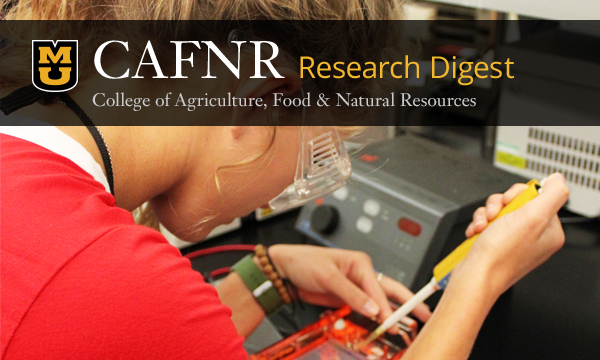|
CAFNR faculty members have received the following recent grants (listed by Principal Investigator):
Pengyin Chen, Discovering and Deploying Novel Soybean Genes that Provide Durable Resistance to Multiple Nematode Species, 10/1/2018 – 9/30/2019, $95,840, University of Georgia
Felix Fritschi, Improving Soybean Photosynthesis and Yield Using a Transgenic Approach, 1/1/2018 – 12/31/2019, $54,930, Zeakal Inc.
Minviluz (Bing) Stacey, Non-Transgenic Generation of Herbicide Resistance in Soybean Using CRISPR Base Editing, 12/1/2018 – 11/30/2021, $25,000, Ohio State University
Gene Stevens, Cotton Nitrogen Management with Urea and Controlled-Release Fertilizer Mixtures on Silt Loam Soil, 1/1/2019 – 12/31/2019, $11,200, Cotton Inc.
William Wiebold, Developing Unique, Genetically Diverse New Varieties of Soybeans that Combine Elevated Concentrations of Protein with High Yields, 10/1/2018 – 7/31/2019, $38,200, USDA Agricultural Research Service
Provided by the MU Office of Research
|
